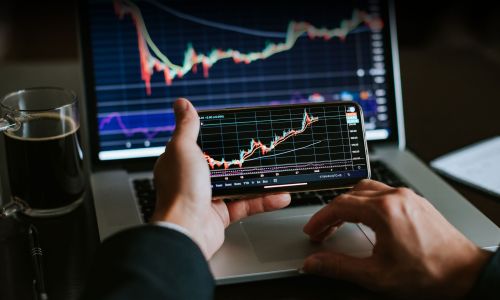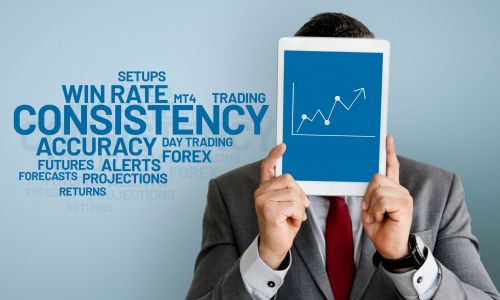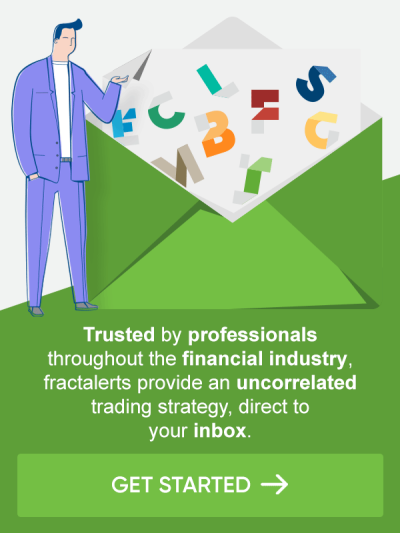It’s 10pm on a Saturday night.
You see a stray headline.
A buried stat from a recent filing.
A Twitter thread with some back-of-the-napkin due diligence.
You start second-guessing your trades from Friday. Panic sets in.
You spend the rest of the weekend planning your next moves.
When Monday comes around, your new strategy looks like a lock.
Until you quickly realize that all that new info was just noise, and the market has different plans entirely.
You didn’t make a trade. You overtraded.
Overtrading, whether occasional or chronic, is really just a symptom of boredom. You think you need to be doing something to be productive, so you do what comes easiest: trading. When you’re logged onto a trading platform, you’re constantly looking for opportunities. In these low-friction environments, it just takes a few clicks to go from research to executing a trade. And having an itchy trigger finger can prove to be not just distracting, but destructive.
Achieving long-term compounding returns means avoiding losses just as much as finding gains. So while a single unnecessary trade now and then can cost you a little, making a habit of overtrading will compound over time. Just like how a single cigarette won’t kill you, but a cigarette habit can.
Here’s what you can do instead of overtrading.
Not to be a Warren Buffett guy, but Warren Buffett has some advice for you. He famously spends 5 to 6 hours (some sources say 80%) of every work day reading mostly corporate reports and newspapers. Depending on your personality, that either sounds like a dream job or snoozefest. But for any trader, reading throughout the day is an essential way to get ahead – and prevent you from making careless mistakes on a whim.
The trick is to read broadly (so you don’t miss the big picture), regularly (so you become a better reader) and continuously (so you can synthesize information into meaningful patterns). A few places to start:
- Catch up on market-wide news from trusted sources like WSJ and Bloomberg.
- Read sector-specific blogs and analysts’ research reports (Even free ones can have nuggets of insight.)
- Subscribe to emails with market insight or research .
- Read corporate reports, particularly 10–Qs, 10-Ks and 8-Ks.
- Take notes on the latest finance TikToks (Or, maybe don’t. Just checking if you’re still awake.)
What Buffett demonstrates with his (frankly, pretty superhuman) reading habit is that even when you’re not trading, your time can be both productive and valuable. Reading, learning and otherwise preparing for future trades shouldn’t just be part of your process. It should be your default state, only occasionally interrupted to actually execute a trade that’s part of your strategy.
The fact is, how you spend today can save you time and money tomorrow.
Someday, an opportunity will come across your trading desk that’s too good to pass up. But to be able to spot it and act on it properly, you have to have already done the research. If you’re always starting from square one, gathering information, developing a strategy and waiting for the moment to jump in, you won’t be able to act when it really counts. But by taking a page – or a couple thousand – out of Buffett’s book, you can be ready to make it count, every time.
Optimize your trading with fractalerts!
Want to learn more about how math and physics can improve your trading? Take a more analytical look at the markets and remove the emotion… and misperceptions that run infectiously through the minds of most traders. Fill in the form on our home page and a member of our team would be happy to give you a call or engage via email.
-

The rhytm beneath the noise
-

You Don’t Need a Trading Style. You Need an Edge.
-

Consistency Isn’t the Goal—It’s the Outcome
-

What 2 Quadrillion Data Points Told Us
-

Math and Physics-Based Trading in Any Market Condition
-

Do not worry about anomalies
-

Consistency should not be the goal. Consistency should be the result.
-

Stop canceling fridays
-

The Elliott Wave Forecast is Subjective, Bias Driven And Backwards looking
-

Finding patterns in market data

